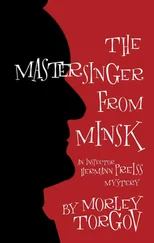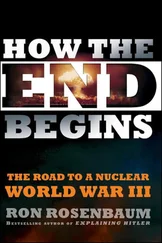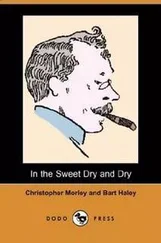Christopher Morley - Where the Blue Begins
Здесь есть возможность читать онлайн «Christopher Morley - Where the Blue Begins» весь текст электронной книги совершенно бесплатно (целиком полную версию без сокращений). В некоторых случаях можно слушать аудио, скачать через торрент в формате fb2 и присутствует краткое содержание. Жанр: Проза, на английском языке. Описание произведения, (предисловие) а так же отзывы посетителей доступны на портале библиотеки ЛибКат.
- Название:Where the Blue Begins
- Автор:
- Жанр:
- Год:неизвестен
- ISBN:нет данных
- Рейтинг книги:5 / 5. Голосов: 1
-
Избранное:Добавить в избранное
- Отзывы:
-
Ваша оценка:
- 100
- 1
- 2
- 3
- 4
- 5
Where the Blue Begins: краткое содержание, описание и аннотация
Предлагаем к чтению аннотацию, описание, краткое содержание или предисловие (зависит от того, что написал сам автор книги «Where the Blue Begins»). Если вы не нашли необходимую информацию о книге — напишите в комментариях, мы постараемся отыскать её.
Where the Blue Begins — читать онлайн бесплатно полную книгу (весь текст) целиком
Ниже представлен текст книги, разбитый по страницам. Система сохранения места последней прочитанной страницы, позволяет с удобством читать онлайн бесплатно книгу «Where the Blue Begins», без необходимости каждый раз заново искать на чём Вы остановились. Поставьте закладку, и сможете в любой момент перейти на страницу, на которой закончили чтение.
Интервал:
Закладка:
Gissing stood, quivering with emotion. Joy such as he had never known darted through all the cords of his body. He ran, shouting, in mirth and terror. In fear, in a passion of love and knowledge and understanding, he abased himself and yearned before this marvel. Impossible to have conceived, yet, once seen, utterly satisfying and the fulfilment of all needs. He laughed and leaped and worshipped. When the first transport was over, he laid his head against this being's knee, he nestled there and was content. This was the inscrutable perfect answer.
“Cripes!” said the puzzled tramp, as he caressed the nuzzling head. “The purp's loco. Maybe he's been lost. You might think he'd never seen a man before.”
He was right.
And Gissing sat quietly, his throat resting upon the soiled knee of a very old and spicy trouser.
“I have found God,” he said.
Presently he thought of the ship. It would not do to leave her so insecurely moored. Reluctantly, with many a backward glance and a heart full of glory, he left the Presence. He ran to the edge of the hill to look down upon the harbour.
The outlook was puzzlingly altered. He gazed in astonishment. What were those poplars, rising naked into the bright air? — there was something familiar about them. And that little house beyond… he stared bewildered.
The great shining breadth of the ocean had shrunk to the roundness of a tiny pond. And the Pomerania? He leaned over, shaken with questions. There, beside the bank, was a little plank of wood, a child's plaything, roughly fashioned shipshape: two chips for funnels; red and yellow frosted leaves for flags; a withered dogwood blossom for propeller. He leaned closer, with whirling mind. In the clear cool surface of the pond he could see the sky mirrored, deeper than any ocean, pellucid, infinite, blue.
He ran up the path to the house. The scuffled ragged garden lay naked and hard. At the windows, he saw with surprise, were holly wreaths tied with broad red ribbon. On the porch, some battered toys. He opened the door.
A fluttering rosy light filled the room. By the fireplace the puppies — how big they were! — were sitting with Mrs. Spaniel. Joyous uproar greeted him: they flung themselves upon him. Shouts of “Daddy! Daddy!” filled the house, while the young Spaniels stood by more bashfully.
Good Mrs. Spaniel was gratefully moved. Her moist eyes shone brightly in the firelight.
“I knew you'd be home for Christmas, Mr. Gissing,” she said. “I've been telling them so all afternoon. Now, children, be still a moment and let me speak. I've been telling you your Daddy would be home in time for a Christmas Eve story. I've got to go and fix that plum pudding.”
In her excitement a clear bubble dripped from the tip of her tongue. She caught it in her apron, and hurried to the kitchen.
CHAPTER SEVENTEEN
The children insisted on leading him all through the house to show how nicely they had taken care of things. And in every room Gissing saw the marks of riot and wreckage. There were tooth-scars on all furniture-legs; the fringes of rugs were chewed off; there were prints of mud, ink, paints, and whatnot, on curtains and wallpapers and coverlets. Poor Mrs. Spaniel kept running anxiously from the kitchen to renew apologies.
“I did try to keep 'em in order,” she said, “but they seem to bash things when you're not looking.”
But Gissing was too happy to stew about such trifles. When the inspection was over, they all sat down by the chimney and he piled on more logs.
“Well, chilluns,” he said, “what do you want Santa Claus to bring you for Christmas?”
“An aunbile!” exclaimed Groups.
“An elphunt!” exclaimed Bunks.
“A little train with hammers!” exclaimed Yelpers.
“A little train with hammers?” asked Gissing. “What does he mean?”
“Oh,” said Groups and Bunks, with condescending pity, “he means a typewriter. He calls it a little train because it moves on a track when you hit it.”
A painful apprehension seized him, and he went hastily to his study. He had not noticed the typewriter, which Mrs. Spaniel had- too late — put out of reach. Half the keys were sticking upright, jammed together and tangled in a whirl of ribbon; the carriage was strangely dislocated. And yet even this mischance, which would once have horrified him, left him unperturbed. It's my own fault, he thought: I shouldn't have left it where they could play with it. Perhaps God thinks the same when His creatures make a mess of the dangerous laws of life.
“A Christmas story!” the children were clamouring.
Can it really be Christmas Eve? Gissing thought. Christmas seems to have come very suddenly this year, I haven't really adjusted my mind to it yet.
“All right,” he said. “Now sit still and keep quiet. Bunks, give Yelpers a little more room. If there's any bickering Santa Claus might hear it.”
He sat in the big chair by the fire, and the three looked upward expectantly from the hearthrug.
“Once upon a time there were three little puppies, who lived in a house in the country in the Canine Estates. And their names were Groups, Bunks, and Yelpers.”
The three tails thumped in turn as the names were mentioned, but the children were too excitedly absorbed to interrupt.
“And one year, just before Christmas, they heard a dreadful rumour.”
“What's a rumour?” cried Yelpers, alarmed.
This was rather difficult to explain, so Gissing did not attempt it. He began again.
“They heard that Santa Claus might not be able to come because he was so behind with his housework. You see, Santa Claus is a great big Newfoundland dog with a white beard, and he lives in a frosty kennel at the North Pole, all shining with icicles round the roof and windows. But it's so far away from everywhere that poor Santa couldn't get a servant. All the maids who went there refused to stay because it was so cold and lonely, and so far from the movies. Santa Claus was busy in his workshop, making toys; he was busy taking care of the reindeer in their snow-stables; and he didn't have time to wash his dishes. So all summer he just let them pile up and pile up in the kitchen. And when Christmas came near, there was his lovely house in a dreadful state of untidiness. He couldn't go away and leave it like that. And so, if he didn't get his dishes washed and the house cleaned up for Christmas, all the puppies all over the world would have to go without toys. When Groups and Bunks and Yelpers heard this, they were very much worried.”
“How did they hear it?” asked Bunks, who was the analytical member of the trio.
“A very sensible question,” said Gissing, approvingly. “They heard it from the chipmunk who lives in the wood behind the house. The chipmunk heard it underground.”
“In his chipmonastery?” cried Groups. It was a family joke to call the chipmunk's burrow by that name, and though the puppies did not understand the pun they relished the long word.
“Yes,” continued Gissing. “The reindeer in Santa Claus's stable were so unhappy about the dishes not being washed, and the chance of missing their Christmas frolic, that they broadcasted a radio message. Their horns are very fine for sending radio, and the chipmunk, sitting at his little wireless outfit, with the receivers over his ears, heard it. And Chippy told Groups and Bunks and Yelpers.
“So these puppies decided to help Santa Claus. They didn't know exactly where to find him, but the chipmunk told them the direction, and off they went. They travelled and travelled, and when they came to the ocean they begged a ride from the seagulls, and each one sat on a seagull's back just as though he was on a little airplane. They flew and flew, and at last they came to Santa Claus's house. Through the stable-walls, which were made of clear ice, they could see the reindeer stamping in their stalls. In the big workshop, where Santa Claus was busy making toys, they could hear a lively sound of hammering. The big red sleigh was standing outside the stables, all ready to be hitched up to the reindeer.
Читать дальшеИнтервал:
Закладка:
Похожие книги на «Where the Blue Begins»
Представляем Вашему вниманию похожие книги на «Where the Blue Begins» списком для выбора. Мы отобрали схожую по названию и смыслу литературу в надежде предоставить читателям больше вариантов отыскать новые, интересные, ещё непрочитанные произведения.
Обсуждение, отзывы о книге «Where the Blue Begins» и просто собственные мнения читателей. Оставьте ваши комментарии, напишите, что Вы думаете о произведении, его смысле или главных героях. Укажите что конкретно понравилось, а что нет, и почему Вы так считаете.










